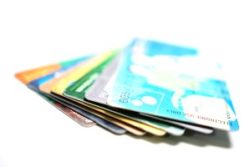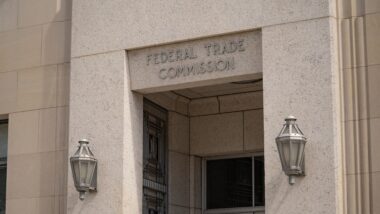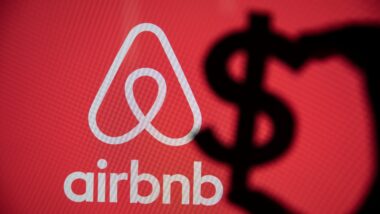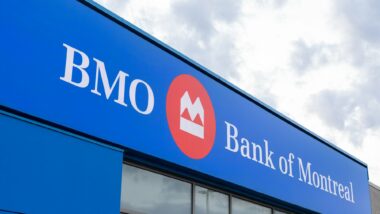Top Class Actions’s website and social media posts use affiliate links. If you make a purchase using such links, we may receive a commission, but it will not result in any additional charges to you. Please review our Affiliate Link Disclosure for more information.
NSF Fees: Overview
As banking becomes more automated and digital transactions continue to increase, it may become more likely that a customer mistimes a deposit, is hit with an unexpected bill or runs their debit card one too many times, leading to a pricey “NSF fee” on their overdrawn account.
But what are NSF fees? Are they different from overdraft fees?
According to depositaccounts.com, many financial institutions use the term “NSF fee” and “overdraft fee” interchangeably; however, there is a major difference between the two.
“NSF” refers to “non-sufficient funds,” and the NSF fee is assessed when the account holder attempts to use money not in the account. Back when paper cheques were more common, this was known as “bouncing” a cheque.
By contrast, an overdraft fee is assessed when an account holder debits more money than is in their account, but the bank agrees to cover the charge.
While depositaccounts.com reports many banks and credit unions charge the same fee for NSF and overdraft transactions, merchants can also charge an NSF fee when a transaction is declined on their end.
Why Do Banks Charge NSF Fees?
NSF fees purport to cover the costs of rejecting a transaction due to insufficient funds in an account. However, some consumer advocacy groups have pointed out NSF, as well as overdraft fees, are quite high, considering the ease with which a credit union or bank can deny a transaction.
Indeed, the Center for Responsible Lending documented possible daily fees of between $102 and $216 at the largest banks in 2017.
Further, these fees disproportionately affect young and low-income account holders who tend to maintain lower balances.
NSF Fees Canada
According to advocacy group Democracy Watch, Canadians have been subjected to high bank fees since at least 2009 when the group called for an audit of “excessive” bank profits. The group claimed the largest banks were using NSF, overdraft and other fees, as well as high credit card rates, to drive up profits at the expense of everyday consumers.

Indeed, the NSF fees at some of the largest banks in Canada, including BMO, HSBC, Scotiabank and TD, can reportedly reach as high as $48. Additionally, the Financial Consumer Agency noted in a 2014 policy paper that NSF fees are on the rise.
Avoiding NSF Fees
Depositaccounts.com recommends consumers track their accounts carefully and set up an email alert when the balance is low to help avoid NSF fees.
Additionally, many banks allow consumers to link their chequing and savings accounts to automatically pull in funds if the account becomes overdrawn; however, this service often comes with its own fees.
While overdraft fees present their own issues and are often the same amount as an NSF fee, customers who opt into overdraft protection may be able to avoid additional merchant fees for non-sufficient funds.
Further, account holders who are surprised by an NSF fee should review their transactions and call their bank if they see any discrepancies. Some banks have been accused of reordering transactions to extract the maximum number of fees possible.
Customers who do not regularly overdraw their accounts may be able to ask their bank to consider reversing the charges.
Bank NSF Fees: Legal Action
Some banks in Canada have been accused of unfairly assessing NSF fees, as well as charging abusive and exorbitant fees.
According to a class action lawsuit filed in Quebec, the NSF fees charged by several major banks in Canada violated provisions of the Consumer Protection Act. In addition, the plaintiffs said the fees, amounting to between $40 and $65 each, were excessive.
In the United States, several major banks, including TD Bank, have reportedly agreed to pay millions of dollars to end class action lawsuits alleging they assessed unfair fees.
NSF fees are not the only fee that has resulted in legal action in Canada.
In 2003, a British Columbia man claimed the overdraft fees charged by a dozen credit unions in the province amounted to criminal interest. The class action lawsuit has reportedly gained traction in court, with several judges agreeing that provisions of Canada’s Criminal Code apply to overdraft fees.
Canadian consumers who believe they were charged excessive NSF or overdraft fees or were charged these fees unfairly by their bank or credit union may be able to join an investigation into these practices.
Have you been charged an NSF fee by your bank or credit union in the past five years? Tell us what happened in the comment section below.
ATTORNEY ADVERTISING
Top Class Actions is a Proud Member of the American Bar Association
LEGAL INFORMATION IS NOT LEGAL ADVICE
Top Class Actions Legal Statement
©2008 – 2024 Top Class Actions® LLC
Various Trademarks held by their respective owners
This website is not intended for viewing or usage by European Union citizens.


















5 thoughts onWhat Are NSF Fees?
Sadly it was the end of the month and I had a monthly payment didn’t go through, so TD returned it, charged me $48 dollars and allowed that same payment to go theough and be declined for the next three business days. On the 4th day, there were enough funds but by then, I had incurred nearly $150 on a charge less than $20. Is this legal?
Mycreditunionrepeatccharges. Every second week my van payment comes out. Of my account. I don’t get my pay cheque deposited until noon on the day the the payment is due. They always put the check through and promptly slap me with a $35.00 nsf fee. I’ve been with this credit union for at least 20 years. When ever that happened the manager would reverse the nsf funds. If I call the larger credit union at the city close to me they will reverse individual ones but I have to talk to my bank. I’ve been unable to keep up with my banking so my daughter has been helping pay my bills from my account. She was the one who told me it was still going on
My bank recently charged me FORTY-FIVE dollars for an NSF fee for a monthly automatic withdrawal. This fee was more than DOUBLE what I had in my account at the time. What on earth is going through peoples’ heads that they think “we should charge them more money” is anywhere NEAR an *acceptable* solution to the problem of “this person doesn’t have enough money”? I had the money a day or 2 later, but that is hollow succor to the $45-sized hole in my bank account. BS like this is how poor people stay poor, they are definitely unethical and SHOULD be illegal.
Yeah paypal just turned a transaction that I didn’t even mean to make into like 17 payments rather than one and then my bank started hitting me with ding after ding of nsf fees for EVERY SINGLE PAYMENT. This is legitimately ridiculous. They make billions per year off of people with no money and then tell you you should have been more careful. I’m not eating for 2 weeks now.
My son is 14, there were 2 transactions that were withdrawn from paypal and reversed in one day then a 90$ NSF. This happened again for the exact same charges 6 days later. We don’t even know where the paypal withdraws are coming from. That’s 180$ in NSF’s in 6 days. Should a minors account even be allowed to have these kinds of charges? If there are no funds (much like paying at a merchant terminal) the transaction should just be declined. Is he even legally responsible to pay for that at his age?